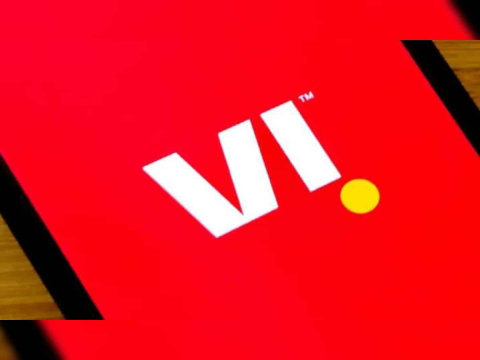Vodafone Idea and Indus Tower Share Price Declines After Goldman Sachs Reduces Target Price
The recent developments surrounding Vodafone Idea Ltd. (Vi) and Indus Towers have caused significant market buzz, with global brokerage firms issuing sharply contrasting recommendations. Goldman Sachs' stark "sell" recommendation on Vodafone Idea, coupled with a dismal price target of ₹2.5 per share, has shaken investor confidence, reflecting an anticipated downside of over 80%. Meanwhile, Citi’s "buy" rating presents a different perspective. Amidst the turbulence, Goldman also downgraded Indus Towers, a key player in telecom infrastructure, signaling concerns over its valuation disconnect and long-term growth potential. This article unpacks the implications of these recommendations and what they mean for investors.
Goldman Sachs Issues "Sell" Recommendation for Vodafone Idea
Global brokerage firm Goldman Sachs has issued a firm "sell" recommendation on Indian telecom giant Vodafone Idea Ltd., citing weak market fundamentals and long-term financial instability. Goldman has set a price target of ₹2.5 per share, reflecting a potential downside of over 80% from the stock's last closing level on Thursday. The dramatic decline in the stock's valuation underlines the company's ongoing struggles in an increasingly competitive telecom market, driven by concerns over its capital structure and future cash flow generation.
Capital Raise Unlikely to Halt Market Share Erosion
Goldman Sachs' pessimistic outlook stems largely from concerns that Vodafone Idea’s recent capital raise will not be sufficient to curb the company’s market share erosion. The foreign brokerage predicts that Vi will face an additional 300 basis points decline in market share over the next 3-4 years. This continued erosion of market share, in tandem with intensifying competition from rivals like Reliance Jio and Bharti Airtel, is expected to compound Vi's financial woes.
AGR and Spectrum-Related Payments Loom
Adding to the company’s financial distress is its substantial burden of adjusted gross revenue (AGR) and spectrum-related payments, which are set to commence in FY26. These payments are likely to further strain Vodafone Idea’s already stressed balance sheet, making it increasingly difficult for the company to achieve financial stability. The mounting regulatory obligations could force Vi into a tighter liquidity crunch, requiring significant operational restructuring or additional capital infusions to manage its liabilities.
Free Cash Flow to Remain Negative Until FY31
Goldman Sachs projects that Vodafone Idea’s free cash flow will remain in the negative at least until FY31, a dire signal for investors. In order for Vi to achieve sustainable free cash flow neutrality, the brokerage estimates that the company’s average revenue per user (ARPU) would need to increase substantially by ₹200-270 compared to December 2024 levels. Given the fierce pricing competition in India’s telecom sector, this level of ARPU growth may be challenging to achieve, further complicating Vi's road to recovery.
Deutsche Bank's Even Bleaker Outlook
While Goldman Sachs' price target of ₹2.5 per share is concerning, it is not the lowest on the street. Deutsche Bank has placed a price target of ₹1.5 per share on Vodafone Idea, underscoring the severity of the company's financial predicament. Deutsche Bank’s valuation suggests that the company’s recovery prospects are even more limited than Goldman Sachs projects, further dampening investor sentiment.
Citi Stands Alone With "Buy" Rating
In stark contrast to Goldman Sachs and Deutsche Bank, Citi has maintained a more optimistic outlook, retaining its "buy" rating on Vodafone Idea with a price target of ₹22 per share. Citi’s bullish stance suggests that there may still be a path to recovery for the beleaguered telecom company, though this view remains highly speculative given the current market dynamics and financial uncertainties surrounding Vi.
Indus Towers Faces Downgrade From Goldman Sachs
Meanwhile, the ripple effects of Vodafone Idea’s troubles have extended to Indus Towers, one of the leading telecom infrastructure providers in India. Goldman Sachs downgraded Indus Towers’ stock from a "neutral" rating to "sell", despite raising the target price from ₹220 to ₹350. The firm noted a clear disconnect between Indus Towers' fundamentals and its current valuations, particularly given the uncertainty around Vodafone Idea’s financial health.
Long-Term Growth Prospects of Indus Towers in Question
Goldman Sachs has expressed concerns over Indus Towers' long-term growth prospects, indicating that the recent re-rating of the stock may have been overdone. The brokerage firm would adopt a more constructive stance on Indus Towers only if Vodafone Idea, one of its key clients, can successfully repair its balance sheet and stabilize its business. However, with Vodafone Idea’s financial struggles far from resolved, Indus Towers' medium- to long-term growth visibility remains limited.
Conclusion: Caution for Investors Amid Uncertainty
As Vodafone Idea continues to grapple with mounting financial pressures and a shrinking market share, investors face a challenging landscape. While Citi remains optimistic with its "buy" rating, most brokerages, including Goldman Sachs and Deutsche Bank, offer a far bleaker outlook. Furthermore, the downgrade of Indus Towers by Goldman Sachs serves as a reminder of the ripple effect that Vodafone Idea’s instability is having on the broader telecom ecosystem.
Investors must tread carefully, keeping a close eye on developments in ARPU growth, capital raising efforts, and regulatory payments that could dictate the future trajectory of both Vodafone Idea and Indus Towers. The risks are substantial, but for those willing to navigate the uncertainty, there may still be opportunities to be found.
